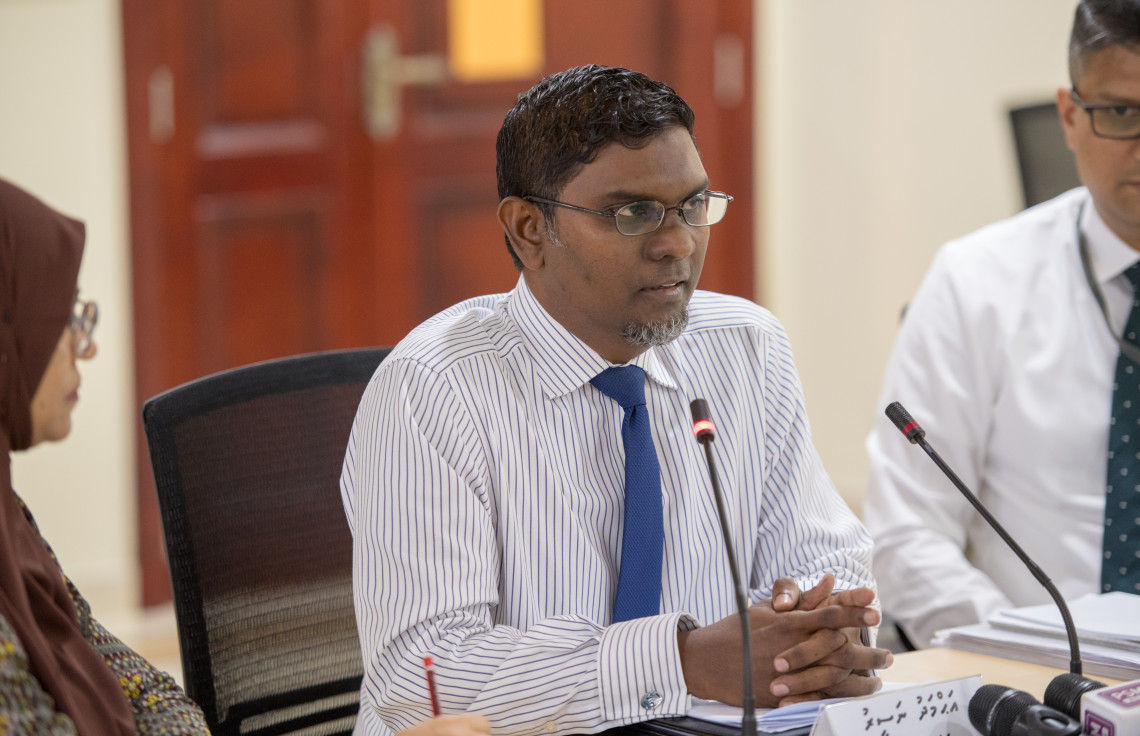Governor defends removal of top anti-money laundering official
He was transferred after reporting suspicious transactions by former president Yameen.

23 Jul 2019, 09:00
Central Bank Governor Ahmed Naseer has defended his decision to remove the Financial Intelligence Unit’s top official shortly after he reported suspicious transactions involving former president Abdulla Yameen.
Both Naseer and former FIU boss Abdulla Ashraf were questioned by parliament’s public accounts committee on Monday evening. They were summoned after Ashraf alleged interference by the governor over the anti-money laundering watchdog, which functions as an independent agency within the central bank.
The pair levelled serious allegations against each other during the separate committee hearings.
Ashraf accused Naseer of “obstructing” his duties in reporting two suspicious transactions by then-president Yameen – the transfer of US$1 million to an escrow account set up by the Anti-Corruption Commission, and US$1.5 million deposited into his private bank account days before the September 23 presidential election.
Become a member
Get full access to our archive and personalise your experience.
Already a member?
Discussion
No comments yet. Be the first to share your thoughts!
No comments yet. Be the first to join the conversation!
Join the Conversation
Sign in to share your thoughts under an alias and take part in the discussion. Independent journalism thrives on open, respectful debate — your voice matters.




